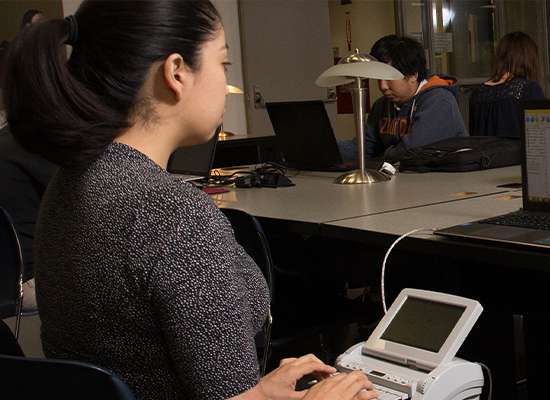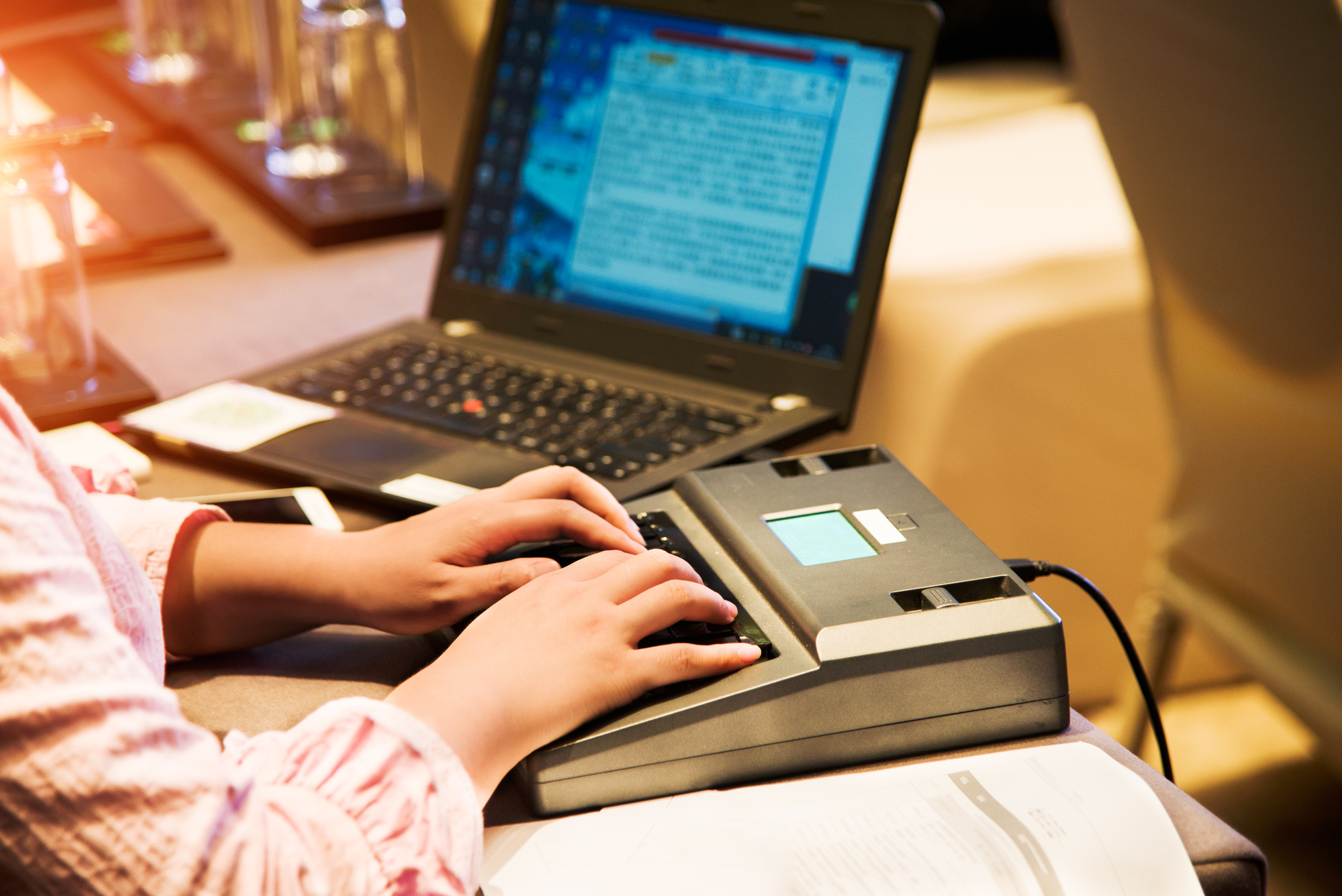How to get started with durham court reporting: beginner tips
All Regarding Court Reporting: Crucial Insights Into Its Value in Law
Court reporting offers an essential feature within the legal framework, offering a trustworthy and accurate document of process. With sophisticated methods and devices, court press reporters capture the nuances of statements and legal dialogue. The significance of their job extends beyond mere transcription. As the legal landscape advances, so too does the role of modern technology in court reporting. Comprehending these characteristics discloses much deeper implications for justice and openness in the lawful system.
The Function of Court Reporters in the Legal System

Frequently ignored, court press reporters play a necessary function in the legal system by making certain a verbatim and precise record of procedures. Their primary obligation entails transcribing talked words throughout trials, depositions, and various other lawful occasions, which functions as a main document for future referral. This documentation is very important for allures, as it gives the essential information for examining decisions made by courts and courts.
Stenotype reporter have to have phenomenal listening skills and a deep understanding of lawful terminology to record the nuances of statement and argumentation precisely. Their work adds to openness within the judicial process, enabling liability and fairness. In addition, they help with accessibility to justice by making documents offered to included parties, making certain that every person has the possibility to evaluate the proceedings. In this method, stenotype reporter promote the stability of the legal system, reinforcing the importance of precise interaction in issues of regulation.
Tools and methods Utilized in Court Reporting
In court reporting, numerous methods and tools boost the precision and effectiveness of transcription. Stenography innovation plays a significant duty, permitting reporters to capture talked words rapidly, while electronic recording methods provide alternative services for documentation. Understanding these devices is essential for comprehending how stenotype reporter satisfy their essential feature in the lawful system.
Stenography Modern Technology Introduction
Stenography innovation functions as the foundation of modern court reporting, making it possible for precise and effective transcription of talked dialogue. Making use of specialized devices referred to as stenographs, court reporters can capture speech at remarkable rates, commonly exceeding 200 words per minute. These devices utilize an unique key-board design that enables several tricks to be pressed concurrently, producing phonetic representations of words - durham court reporting. This approach decreases the requirement for substantial spelling and improves transcription accuracy. Furthermore, stenographers utilize numerous shorthand strategies and signs to more simplify the procedure, making certain that no information is forgotten throughout procedures. The assimilation of stenography technology not just promotes efficient communication in lawful settings however also supports the stability of the judicial process by offering precise and reputable documents of discussions
Digital Recording Methods
An increasing variety of court reporting experts are turning to digital recording approaches to enhance the precision and efficiency of their transcriptions. These techniques use innovative audio and video clip innovation to record proceedings in real-time. Digital recorders, commonly paired with premium microphones, guarantee that every word spoken is protected with clearness. Specialized software can transcribe audio files immediately, permitting for quicker turn-around times. Some professionals incorporate twin recording systems for redundancy, guaranteeing no vital information is lost. Additionally, digital recordings can be easily indexed and searched, assisting in swift access of certain sectors. As legal environments evolve, accepting these digital devices not only simplifies the reporting procedure but additionally keeps the stability of the document.
The Importance of Precision in Transcription
Accuracy in transcription is essential in court reporting, as it guarantees that lawful records mirror real content of process. This accuracy can considerably influence situation results, affecting the choices made by juries and judges. Preserving high criteria of precision is vital in the legal occupation.

Accuracy in Lawful Records
Although the lawful system depends heavily on significant arguments and persuasive rhetoric, the real foundation of judicial procedures depends on the accuracy of lawful documents. Exact transcription is vital, as it guarantees that every question, judgment, and declaration is documented properly. Such accuracy serves several objectives, including supplying a reliable reference for allure procedures and preserving the integrity of the judicial system. Mistakes in transcription can cause misconceptions, false impressions, and possibly damaging repercussions for all events entailed. As a result, court press reporters must have extraordinary skills and focus to information, as their job directly impacts the clarity of legal documents. Eventually, the accuracy of legal documents underpins the trust placed in the judicial procedure, reinforcing the significance of careful transcription.

Influence On Instance Outcomes
When legal process unravel, the accuracy of transcription frequently dictates the trajectory of an instance's outcome. Precise court reporting guarantees that every word spoken is effectively caught, enabling courts, lawyers, and courts to make enlightened choices based on the document. Mistakes in transcription can lead to misconceptions, misinterpretations, and potentially unfair judgments. The integrity of lawful records counts greatly on the precision of these records, as they offer as the foundation for charms and further lawsuits. In high-stakes instances, where the effects are profound, the duty of a court reporter comes to be even extra essential. Keeping strenuous requirements in transcription not only supports the legal procedure however likewise maintains the concepts of justice and justness in the courtroom.
Court Reporting in Various Legal Settings
Court reporting plays an essential duty across various lawful setups, ensuring that proceedings are precisely documented for future recommendation. In criminal court, court press reporters transcribe statements, proof, and judicial rulings, which are essential for charms and situation testimonials. In civil lawsuits, precise transcripts assist in the exploration process and provide a trusted document for trial proceedings. Additionally, administrative hearings frequently count on stenotype reporter to maintain an official document, making certain transparency and accountability in governmental procedures. Household courts likewise benefit from court reporting, as accurate documents of procedures can influence custodianship decisions and settlements. Furthermore, depositions in pre-trial phases call for precise recordings to record the subtleties of witness statements, which might be significant in forming situation methods. On the whole, court reporting acts as a foundation in the legal system, promoting fairness and clearness across diverse judicial environments.
The Effect of Innovation on Court Reporting
As modern technology remains to progress, its impact on court reporting has actually become significantly substantial. Advancements such as electronic recording, real-time transcription software program, and expert system have actually changed read traditional techniques. Digital audio recorders now record courtroom procedures with remarkable clearness, permitting court reporters to focus on subtleties and context instead of solely on typing. Real-time transcription innovations enable prompt accessibility to transcripts, advertising efficiency and enhancing partnership among lawful experts. Furthermore, synthetic knowledge devices are being integrated to help in the transcription process, minimizing human mistake and quickening paper generation. Regardless of these innovations, the important skills of court reporters remain indispensable, as they offer a nuanced understanding of lawful language and court room characteristics. Eventually, innovation matches instead of replaces the competence of stenotype reporter, guaranteeing that the integrity and accuracy of lawful documentation are promoted in a progressively electronic landscape.
Career Opportunities and Pathways in Court Reporting
The evolution of innovation in court reporting has opened up a variety of career opportunities for striving specialists in the field. Commonly, stenotype reporter were mainly in charge of transcribing lawful proceedings. Nonetheless, improvements such as electronic recording and real-time reporting have actually expanded their roles.
Today, court reporters can specialize in areas such as captioning for transmission, offering transcription services for legal companies, and operating in the corporate sector for meetings or depositions - durham court reporting. In addition, opportunities in remote reporting, particularly as a result of the rise of virtual court rooms, have ended up being increasingly widespread
Educational pathways consist of official training programs, accreditation courses, and proceeding education to remain upgraded with technological adjustments. Networking within professional and legal organizations additionally plays a substantial duty in occupation advancement. On the whole, the diverse possibilities in court reporting reflect the dynamic nature of the legal profession and the boosting need for proficient professionals.
The Future of Court Reporting in an Evolving Legal Landscape
Just how will the role of court reporting adjust as the legal landscape continues to progress? As technology developments, court reporting is likely to embrace ingenious devices such as fabricated knowledge and real-time transcription software. These innovations might enhance precision and efficiency in catching legal procedures. Moreover, the increasing occurrence of remote hearings demands that court reporters become experienced in digital platforms, making certain smooth documentation no matter place.
Concurrently, stenotype reporter will certainly need to adjust their abilities to take care of brand-new sorts of cases, such as those entailing cyber regulation and intellectual home disputes, which call for specialized understanding. In addition, the need for instantaneous accessibility to transcripts will certainly push professionals to supply quicker turnaround times without jeopardizing high quality. Eventually, the future of court reporting will rest on an equilibrium between traditional abilities and technical integration, making sure that the integrity of the lawful process continues to be undamaged in a progressively electronic globe.
Frequently Asked Questions
Just How Do Court Press Reporters Handle Delicate Info During Procedures?

What Qualifications Are Required to End Up Being a Court Press Reporter?
To end up being a stenotype reporter, individuals commonly require a secondary school diploma, specialized training from an approved program, effectiveness in shorthand or voice writing, and qualification or licensure, depending upon state requirements and laws.
Are Court Reporters Required to Have a Certificate?
Court reporters are typically needed to obtain a certificate, depending upon the jurisdiction. Licensing assurances that they satisfy certain standards of effectiveness and professionalism and reliability, which is vital for maintaining the stability of lawful proceedings.
Exactly How Do Court Reporters Take Care Of Various Accents and Languages?
Court press reporters handle various accents and dialects via substantial training, method, and familiarity with numerous speech patterns. They usually make use of specialized software and methods to accurately capture talked words, making visit here certain clarity and accuracy in their records.
What Is the Typical Wage for a Court Press reporter?
The average income for a stenotype reporter varies by area and experience, usually ranging from $50,000 to $80,000 each year. In high-demand areas, incomes can exceed $100,000, reflecting the occupation's significance and specialized skills.
Typically ignored, court press reporters play an important function in the legal system by ensuring a verbatim and precise record of procedures. In criminal court, court reporters record testaments, proof, and judicial judgments, which are essential for appeals and case reviews. Family members durham court reporting courts additionally benefit from court reporting, as exact documents of procedures can influence guardianship decisions and negotiations. Commonly, court reporters were primarily responsible for transcribing lawful proceedings. Today, court press reporters can specialize in locations such as captioning for tv broadcasts, providing transcription services for lawful companies, and working in the company field for conferences or depositions.